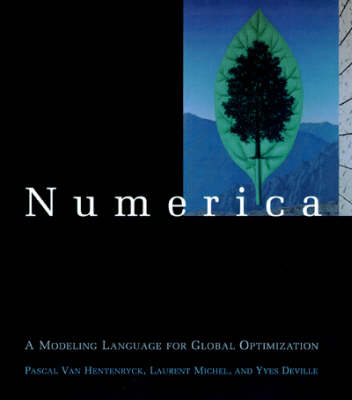The MIT Press
3 total works
Online Stochastic Combinatorial Optimization
by Pascal Van Hentenryck and Russell Bent
A framework for online decision making under uncertainty and time constraints, with online stochastic algorithms for implementing the framework, performance guarantees, and demonstrations of a variety of applications.
Online decision making under uncertainty and time constraints represents one of the most challenging problems for robust intelligent agents. In an increasingly dynamic, interconnected, and real-time world, intelligent systems must adapt dynamically to uncertainties, update existing plans to accommodate new requests and events, and produce high-quality decisions under severe time constraints. Such online decision-making applications are becoming increasingly common: ambulance dispatching and emergency city-evacuation routing, for example, are inherently online decision-making problems; other applications include packet scheduling for Internet communications and reservation systems. This book presents a novel framework, online stochastic optimization, to address this challenge. This framework assumes that the distribution of future requests, or an approximation thereof, is available for sampling, as is the case in many applications that make either historical data or predictive models available. It assumes additionally that the distribution of future requests is independent of current decisions, which is also the case in a variety of applications and holds significant computational advantages. The book presents several online stochastic algorithms implementing the framework, provides performance guarantees, and demonstrates a variety of applications. It discusses how to relax some of the assumptions in using historical sampling and machine learning and analyzes different underlying algorithmic problems. And finally, the book discusses the framework's possible limitations and suggests directions for future research.
Many science and engineering applications require the user to find solutions to systems of nonlinear constraints or to optimize a nonlinear function subject to nonlinear constraints. The field of global optimization is the study of methods to find all solutions to systems of nonlinear constraints and all global optima to optimization problems. Numerica is modeling language for global optimization that makes it possible to state nonlinear problems in a form close to the statements traditionally found in textbooks and scientific papers. The constraint-solving algorithm of Numerica is based on a combination of traditional numerical methods such as interval and local methods, and constraint satisfaction techniques. This comprehensive presentation of Numerica describes its design, functions, and implementation. It also discusses how to use Numerica effectively to solve practical problems and reports a number of experimental results. A commercial implementation of Numerica is available from ILOG under the name ILOG Numerica.
Introducing a method for solving combinatorial optimization problems that combines the techniques of constraint programming and local search.
The ubiquity of combinatorial optimization problems in our society is illustrated by the novel application areas for optimization technology, which range from supply chain management to sports tournament scheduling. Over the last two decades, constraint programming has emerged as a fundamental methodology to solve a variety of combinatorial problems, and rich constraint programming languages have been developed for expressing and combining constraints and specifying search procedures at a high level of abstraction. Local search approaches to combinatorial optimization are able to isolate optimal or near-optimal solutions within reasonable time constraints.
This book introduces a method for solving combinatorial optimization problems that combines constraint programming and local search, using constraints to describe and control local search, and a programming language, COMET, that supports both modeling and search abstractions in the spirit of constraint programming.
After an overview of local search including neighborhoods, heuristics, and metaheuristics, the book presents the architecture and modeling and search components of constraint-based local search and describes how constraint-based local search is supported in COMET. The book describes a variety of applications, arranged by meta-heuristics. It presents scheduling applications, along with the background necessary to understand these challenging problems. The book also includes a number of satisfiability problems, illustrating the ability of constraint-based local search approaches to cope with both satisfiability and optimization problems in a uniform fashion.


